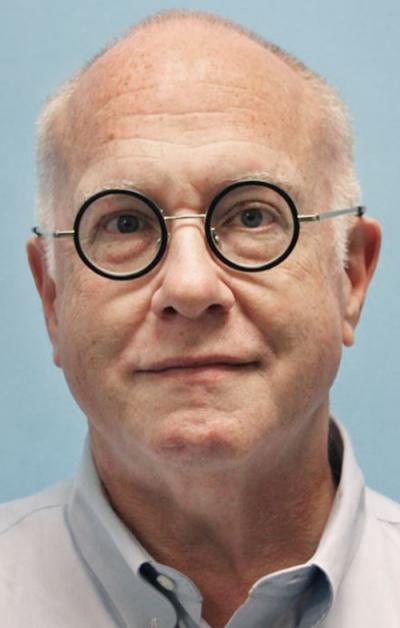

 ICANN's call for Public Comment on Proposed Amendment 3 to the .com Registry Agreement yielded 9,040 public comments during the six-week comment period that ran from January 3, 2020 to February 14, 2020. The public response was amongst the most robust if not the most robust, that ICANN has ever received. To put this in context, the last several Public Comment periods received under 20 comments apiece. more
ICANN's call for Public Comment on Proposed Amendment 3 to the .com Registry Agreement yielded 9,040 public comments during the six-week comment period that ran from January 3, 2020 to February 14, 2020. The public response was amongst the most robust if not the most robust, that ICANN has ever received. To put this in context, the last several Public Comment periods received under 20 comments apiece. more
 Like the Coronavirus, 5G Dementia seems to be spreading around Washington. The latest manifestation has appeared at the FCC -- which is trying its best to make U.S. 5G infrastructure as insecure and primitive as possible. But first, an explanation of how 5G Dementia begins at the top and spreads in the U.S. capitol. 5G Dementia begins with "The Genius" who lounges around White House quarters and emits spontaneous tweets on whatever motivates him at the moment. more
Like the Coronavirus, 5G Dementia seems to be spreading around Washington. The latest manifestation has appeared at the FCC -- which is trying its best to make U.S. 5G infrastructure as insecure and primitive as possible. But first, an explanation of how 5G Dementia begins at the top and spreads in the U.S. capitol. 5G Dementia begins with "The Genius" who lounges around White House quarters and emits spontaneous tweets on whatever motivates him at the moment. more
The U.S. Federal Communications Commission has proposed fines against the country's four largest wireless carriers for apparently selling access to their customers' location information without taking reasonable measures to protect against unauthorized access to that information. more
 On February 11th, Professor Ben Leff of American University Washington College of Law (WCL) spoke on the panel: The Controversial Sale of the .ORG Registry: The Conversation We Should be Having as a scholar of charitable and nonprofit law. On February 21st, he posted a blog piece on WCL's PIJIP blog outlining and expanding his presentation. With Professor Leff's permission, I repost his piece on CircleID to join the timely discussion taking place here on the .ORG sale. more
On February 11th, Professor Ben Leff of American University Washington College of Law (WCL) spoke on the panel: The Controversial Sale of the .ORG Registry: The Conversation We Should be Having as a scholar of charitable and nonprofit law. On February 21st, he posted a blog piece on WCL's PIJIP blog outlining and expanding his presentation. With Professor Leff's permission, I repost his piece on CircleID to join the timely discussion taking place here on the .ORG sale. more
 When ISOC, PIR and Ethos announced the sale in November they hoped for a quick transaction. PIR CEO Jon Nevett announced the same week that PIR would be going on a buying spree. This was optimistic. Six months, if at all, is now the more likely outcome. How many times in recent history have companies surprised stakeholders with their best-laid plans, only to discover we no longer live in a world where business has free reign. The glory days of the 2000s died with Lehman Brothers. more
When ISOC, PIR and Ethos announced the sale in November they hoped for a quick transaction. PIR CEO Jon Nevett announced the same week that PIR would be going on a buying spree. This was optimistic. Six months, if at all, is now the more likely outcome. How many times in recent history have companies surprised stakeholders with their best-laid plans, only to discover we no longer live in a world where business has free reign. The glory days of the 2000s died with Lehman Brothers. more
 ICANN's request for comment on amending the .com registry agreement to restore Verisign's pre-2012 pricing flexibility ended last Friday and, with 8,998 responses submitted by stakeholders, may have been a multistakeholder version of the St. Valentine's Day Massacre. Public interest in .com pricing is understandably high but the sheer volume of responses – nearly three times the number of comments submitted this summer on deregulating .org pricing – also suggests a show of force... more
ICANN's request for comment on amending the .com registry agreement to restore Verisign's pre-2012 pricing flexibility ended last Friday and, with 8,998 responses submitted by stakeholders, may have been a multistakeholder version of the St. Valentine's Day Massacre. Public interest in .com pricing is understandably high but the sheer volume of responses – nearly three times the number of comments submitted this summer on deregulating .org pricing – also suggests a show of force... more
 It must have been a galling experience for President Trump when his good mate British Prime Minister Boris Johnson failed to step in line with Trump's demand that the UK should also boycott the Chinese firm Huawei by not allowing them to be involved in the rollout of 5G in Britain. However, the involvement of Huawei will be limited. It further proves that boycotting Huawei is a political and not a technical issue. more
It must have been a galling experience for President Trump when his good mate British Prime Minister Boris Johnson failed to step in line with Trump's demand that the UK should also boycott the Chinese firm Huawei by not allowing them to be involved in the rollout of 5G in Britain. However, the involvement of Huawei will be limited. It further proves that boycotting Huawei is a political and not a technical issue. more
 No, this topic hasn't yet been exhausted: There's still plenty more conversation we can and should have about the proposed sale of the .ORG registry operator to a private firm. Ideally, that conversation will add more information and more clarity about the issues at stake and the facts that underpin those issues. That's why I'm planning to attend today's event at American University where the sale's proponents, opponents and undecideds will have a tremendous opportunity to better understand one another. more
No, this topic hasn't yet been exhausted: There's still plenty more conversation we can and should have about the proposed sale of the .ORG registry operator to a private firm. Ideally, that conversation will add more information and more clarity about the issues at stake and the facts that underpin those issues. That's why I'm planning to attend today's event at American University where the sale's proponents, opponents and undecideds will have a tremendous opportunity to better understand one another. more
The American University Washington College of Law announced it will be hosting a fireside chat on the sale of the Public Interest Registry (PIR) to the private equity firm Ethos Capital. more
 Very few African states today have developed a national cybersecurity strategy or have in place cybersecurity and data protection regulations and laws. Yet, the continent has made major headway in developing its digital ecosystem, and moreover, it is home to the largest free trade area in the world, which is predicted to create an entirely new development path harnessing the potential of its resources and people. more
Very few African states today have developed a national cybersecurity strategy or have in place cybersecurity and data protection regulations and laws. Yet, the continent has made major headway in developing its digital ecosystem, and moreover, it is home to the largest free trade area in the world, which is predicted to create an entirely new development path harnessing the potential of its resources and people. more
 If it feels like the work of the latest group addressing registration data within ICANN has been going on forever, try participating in it! Since the summer of 2018, the team has regularly been meeting for several hours each week, participating in numerous face-to-face meetings and exchanging thousands of emails. Last week in Los Angeles, the team got together once again to continue our Phase 2 work creating policy that will (among other issues) govern the disclosure of non-public registration data to third parties. more
If it feels like the work of the latest group addressing registration data within ICANN has been going on forever, try participating in it! Since the summer of 2018, the team has regularly been meeting for several hours each week, participating in numerous face-to-face meetings and exchanging thousands of emails. Last week in Los Angeles, the team got together once again to continue our Phase 2 work creating policy that will (among other issues) govern the disclosure of non-public registration data to third parties. more
 Internet Governance like all governance needs to be founded in guiding principles from which all policy making is derived. There are no better fundamental principles to guide our policy making than the Universal Declaration of Human Rights, (UDHR). This article is Part 3 of a series exploring the UDHR as a guide and template for the digital governance and digital citizenship. We discuss UDHR Articles 6 through 12 and address topics such as fundamental digital values, cyberlaw, policymaking and the role of tribunals in digital governance. more
Internet Governance like all governance needs to be founded in guiding principles from which all policy making is derived. There are no better fundamental principles to guide our policy making than the Universal Declaration of Human Rights, (UDHR). This article is Part 3 of a series exploring the UDHR as a guide and template for the digital governance and digital citizenship. We discuss UDHR Articles 6 through 12 and address topics such as fundamental digital values, cyberlaw, policymaking and the role of tribunals in digital governance. more
 For all of us at Public Interest Registry, working to remove child sexual abuse content from the Internet isn't just a part of our work; it's our moral duty. As stewards of the .ORG community, addressing the problem head on is the only option compatible with our values. Talking about Child Sexual Abuse Materials (CSAM) is challenging and uncomfortable. It's also far too important, and prevalent, of a problem to ignore. While it's impossible to know exact numbers, online CSAM is a major, rapidly growing crisis. more
For all of us at Public Interest Registry, working to remove child sexual abuse content from the Internet isn't just a part of our work; it's our moral duty. As stewards of the .ORG community, addressing the problem head on is the only option compatible with our values. Talking about Child Sexual Abuse Materials (CSAM) is challenging and uncomfortable. It's also far too important, and prevalent, of a problem to ignore. While it's impossible to know exact numbers, online CSAM is a major, rapidly growing crisis. more
The U.S. Federal Communications Commission (FCC) on Monday announced it is allowing full commercial use of 3.5 GHz band for broadband connectivity and 5G. more
 On the 5th of November 2019, the release of the first of ITU's Measuring Digital Development series coincided with Freedom House's unveiling of its Freedom on Net 2019 report. This serendipity prompted me to write this blog note after carefully examining both reports. On one hand, ITU's analytical publication, with its new friendly format, emphasizes that Internet use continues to spread, warning however that the digital gender gap is widening. more
On the 5th of November 2019, the release of the first of ITU's Measuring Digital Development series coincided with Freedom House's unveiling of its Freedom on Net 2019 report. This serendipity prompted me to write this blog note after carefully examining both reports. On one hand, ITU's analytical publication, with its new friendly format, emphasizes that Internet use continues to spread, warning however that the digital gender gap is widening. more